Hi Serena! Could you first introduce yourself to the reader?
Sure! I’m a new author from Leicester. After graduating with an English degree from Loughborough University, I got straight to working on fulfilling my biggest dream: becoming a writer. My first book, All the Words Unspoken, is now available. I’m thrilled to be able to call myself a novelist!
Please describe your work “All the Words Unspoken” in 3 words.
Heart-breaking, delicate, relatable.
What is the premise of the novel and what inspired this work?
Depressed, unemployed and unable to get herself out of the pit, Maansi agrees to marrying the rich and handsome Aryan, believing wealth and a new lifestyle might rid of her problems. However, both Aryan and Maansi enter the marriage with regrets weighing on their shoulders. The two of them have sacrificed something important to them in their pasts, due to the fear of what others in their community would say. Will their pasts resurface and destroy their marriage?
Before I started writing this story, I knew I wanted to write a novel about the British-Asian experience. There are so few stories out there revolving around British-Asian characters and I was tired of not seeing myself in the pages. The plot came together quite quickly.
I’ve seen a lot of the same situations play out among my friends in the British-Asian community, usually involving them sacrificing their biggest desires or going against their personal values and wishes, all because their families were too worried about log kya kehange which means ‘what will people say?’
I wanted to create characters that go through similar experiences. I wanted my novel to show the consequences of submitting to this thinking.
Tell us more about the protagonist, Maansi, in your novel.
Maansi’s had a rough time. She’d already been struggling with depression and then she had to make a choice that goes against everything she believes in. This worsens her mental health. Her boyfriend leaves her because he can’t ‘handle’ her (just what she needs!).
Unable to cope, she leaves university with a low grade and can’t find someone to employ her. It’s safe to say, Maansi is going through a lot. Even though she’s smart and opinionated, she starts off a little naïve and allows herself to slip into an arranged marriage in order to survive, thinking the drastic change in lifestyle may solve her problems. Maansi can frustrate the reader at times with the decisions she makes. However, her insecurities and mistakes make her relatable. Of course, she gets herself back on her feet and we witness her growth as she learns to tackle her problems and become a stronger woman.
How did you go about approaching taboo topics such as sexuality and abortion within the novel?
Abortion is a topic that continues to divides people, so naturally I knew it was worth exploring. I believe every woman should have a choice. However, if a society or community punishes a woman or ostracises her for choosing to abort, we need to question if a woman really is free to choose. The fear of being gossiped about, unsupported and judged can make a woman feel the decision has already been made for her, before she can truly understand her own wishes.
I’ve known Asian women in this position. They’d been told it was unacceptable, as an Asian woman, to be unmarried and pregnant. They believed they had no choice. Of course, some women are supported. Regardless, abortion outside of marriage is rarely spoken about in Asian communities. I wanted to give these women a voice through my protagonist – to show how difficult a decision can be with the strong opinions of others weighing down on you.
Sexuality is something I’ve struggled with, so I drew on my own experiences and fears as a person handling something that isn’t fully accepted by my community or by the world at large. Of course, I read up on the experiences of others before writing about bisexuality in All the Words Unspoken.
“All the Words Unspoken” champions bi-visability. Explain more about why you included this within the novel and how this impacted you personally.
Bisexuality isn’t well understood, even within the LGBTQ community itself. For one, some people believe bisexual people are just gay and in denial (they still have one foot firmly in the closet). Another common belief is that bisexual men or women cannot commit or access deep levels of love for just one person. This just isn’t true. I wanted to produce a love story where one half of the couple is bisexual. I hope this novel dismantles some of the false beliefs and assumptions surrounding bisexuality.
You’re releasing your first novel during the Covid-19 pandemic. Talk us through the unexpected challenges this has posed, and how you’ve overcome them.
Physical copies are not going to be available until this pandemic is over. This means my novel is only available to purchase as an eBook. Bookstores are closed, book launches and events have been cancelled (for good reason, of course). It’s a difficult time for debut authors.
Thankfully, we are in a digitally connected world! We are working hard to promote the novel online. In all honesty, I didn’t build a following on Instagram or Twitter before publication. Big mistake. Future authors, I highly recommend developing your online presence before getting published. It’s a lot of work!
Has your time in lockdown due to Covid-19 brought about any new creative projects? How have you stayed artistically motivated during this time?
As strange as this will sound, lockdown isn’t an unusual experience for me. I live with M.E – a chronic illness that can leave you housebound due to unrelenting and profound fatigue. Being stuck indoors is my normality. Because of this, I appreciate the magic of a good book.
I may need to remain indoors for a few weeks, yet (when equipped with a book), I can be whisked away to coastal paths or busy markets without stepping out of my room. The enriching experience of reading a novel motivates me to keep writing.
What was the creative process like when writing and editing this novel?
I spent a lot of time actively searching for my story. I wasn’t keen on waiting for inspiration to strike and would milk my brain for ideas until a solid idea formed. I made use of mind maps and character boards. Planning was the hardest part. I’d started novels in the past without planning them in advance and my words would run dry. The plot would dissolve into nothing and I’d hit a dead end.
Once I planned every chapter of All the Words Unspoken, I wrote as often as I could and as much as I could. I believe in getting the story down first, even if you use simple language to do so. Once it’s all there, you can edit and embellish as much as you need to. It’s easier to edit something on the page than to write from scratch.
Have any particular artists inspired or influenced your artistic work?
Toni Morrison! Of course, my novel isn’t literary and I could never produce something of the same level of genius. However, she wrote hard truths and she wrote unapologetically. As a woman of colour, she did not write to satisfy the ‘white gaze.’
Due to the fact that there aren’t many British-Asian voices out there, I was initially worried about what white people would think of my novel and the culture I’m representing. At first, I wondered whether I should filter some events out or only write about the ‘best’ my culture has to offer. Toni Morrison inspired me to write with honesty and not to step on eggshells.
Did you face any major challenges during the project?
As a writer of colour, you do bear the burden of representation. Within this book, I aim to challenge some of the harmful and prevalent ways of thinking within the Asian community.
However, to challenge these cultural problems, I have to unveil some negative aspects of my culture (alongside all the wonderful aspects). This hasn’t been easy and some people are bound to be disappointed. A blogger warned me that because there are so few British-Asian voices out there, I need to ‘get it right.’ She was dismayed that I didn’t resolve all of the deep-rooted cultural problems in my novel with a perfectly happy ending. Yet, such an ending would never work for my book, which I determined should be realistic and raw. And would we all agree on what ‘right’ looks like?
It’s already difficult for authors of colour to be published. We cannot punish them for failing to represent their community in the way every member of the community would prefer. I had to learn to stand by my work. The best a writer can do is to write with nuance and with authenticity.
Do you have any advice for young people interested in doing your kind of job?
You don’t need to have a ‘natural talent’ for writing. Like many other things, writing is a craft. It can be honed and developed. A good place to start… Make sure you know your grammar inside out (too many amateur writers use the comma splice).
Another common problem we see in beginners is overwriting. I’m going to give you an unusual tip. If you have the time and can access resources, learn about copywriting to overcome overwriting. Copywriters have to learn to sell a product using as few words as possible. This means every word must earn its place and must be effective. And lastly, read. Read everything you can get your hands on. Never stop reading.
How can people find out more about “All the Words Unspoken” and about you?
To find out more about the novel, go to www.reddoorpress.co.uk. To connect with me or to learn more about my process, follow my Twitter account @SerenaKaurG or my Instagram account @serenakaur.g You can also head to my website www.serenakaur.com. If you’d like to purchase the eBook, head over to Amazon!


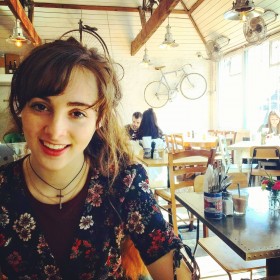
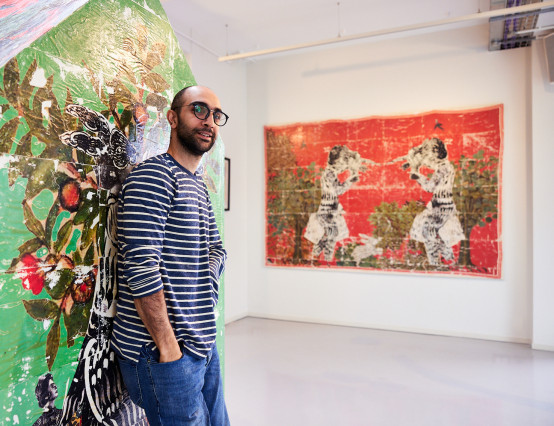
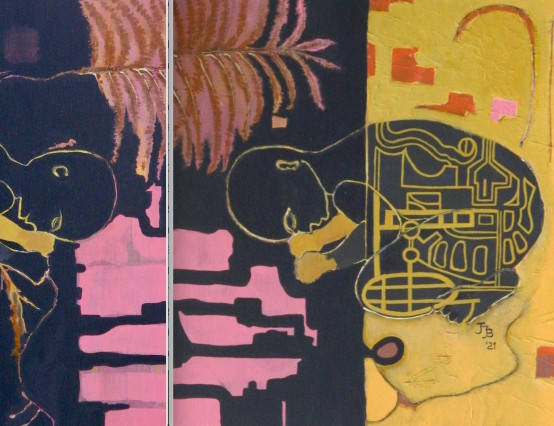
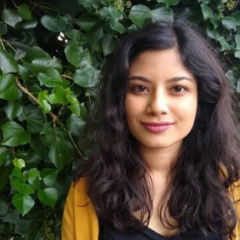
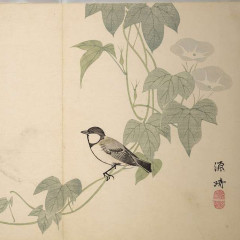
0 Comments